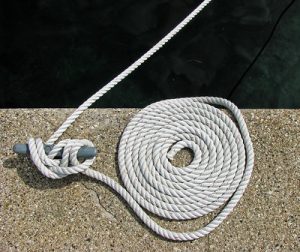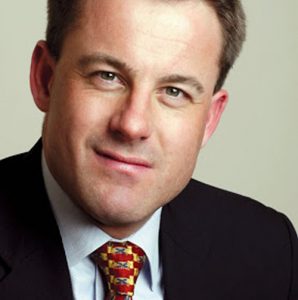To know your role is a given pre-requisite for success. To be effective in any role requires both aptitude for the job and motivation to keep going. A third requirement is an understanding of the role and appreciation for what you need to get done. As a successor, you need to understand the possible role profiles available to you.
This post aims to identify and outline 6 Role Profiles for Successful succession.
To be a member of a business owning family automatically opens up a number of actual and potential roles. Actual by virtue of your very membership of the family; potential due to choices you make throughout your career.
Your first task as you become informed on the family enterprise, is to understand the 6 possible role profiles over a successor lifetime of family business ownership. Seek first to understand these role profiles, the basic requirements of each and the potential value to you and your family.
To do this will put you in a strong and informed position if and when you decide to compete and commit to any family leadership role.
The 6 Successor Role Profiles are the following:
Uninvolved.
Career.
Entrepreneur.
Unifier.
Ownership.
Transition.
Role Profile #1: Uninvolved Successors
Successor who is not yet involved in either the family company or family activities, primarily due to their age. Also includes those who are at a distance – either emotionally or geographically – from the company and/or the majority of the family.
In the majority of cases this will include all younger family members in full time education or starting into the world of work outside of the family business.
All members of the family start from this ‘position’. All of your relatives at some stage were themselves uninvolved. Many of your cousins and siblings may still be so.
Requirements of such a role are not usually onerous but they are important. As a start, explore and understand your strengths through formal and informal feedback. Who are you, really? A close ally to this is to commit to working, perhaps in a number of jobs. If this means working hard, then so be it.
Finally, a capacity for active listening will consistently stand to you as you collect feedback and understand family traits and prior succession patterns.
With these done you will be ready to consider other roles.
Typical questions for the Uninvolved Successor.
‘What is the story of the family company?’
‘What does the family company do?’
‘What are the opportunities for me to learn more?’
Role Profile #2: Career Successors.
Successor who is either actively considering or currently pursuing a management career in the family company intending to achieve over time a position of leadership in the family business.
The usual method of involvement for family members, particularly in the earlier generational stages of family ownership.
Managers, executives or ‘business leaders’, those managing or qualified to undertake a specific ‘professional role’ within a recognised career path in the company.
Requirements of a career successor will be numerous and at times nuanced. Three in particular are of importance and may not be as readily evident as others. A primary requirement is to choose an accepted career ‘field’, usually at an early stage of your career. Usually determined by a professional qualification or area of functional expertise achieved before you join. The key here is that you have taken the time to understand where you can add value and have the presence of mind to stick to your course.
 Second, a consistent active and demonstrated commitment to the values – that which is valued – of the family and company.
Second, a consistent active and demonstrated commitment to the values – that which is valued – of the family and company.
Finally, a demonstrated ability to seek out and identify your own support and feedback system independent of the family and the business where you are working. You will be glad you did this.
Do In want to/can I work for the family business?
Am I in a position to bring value back to the family company?
How can I develop my credibility and leadership ability?
Role Profile#3: Asset or Social Entrepreneurial Successors.
Successor who is either considering or currently developing a career as a commercial or social entrepreneur either independent of or alongside the core family company.
Those who seek to accept the challenge to create and sustain new sources of wealth (asset growth) for themselves or the family. Achieved either alongside or independently of the core family business.
An alternative route open to you is as a ‘social’ entrepreneur. As founder of an organisation with an altruistic purpose, a non-profit structure and a socially validated base. In many cases successors use or leverage the family brand identity and goodwill to achieve momentum. If you need to, do this.
The primary requirement here is the ability to imagine, launch and start-up a new venture; an ability to leap into a net in the hope (and expectation) that it will be there. In short, to take the risk.
Secondly a single-mindedness to work, wait and – if necessary – ‘starve’ (to sacrifice much) for the sake of the venture.
Finally, an awareness as to potential conflict-of-interest – both actual and potential – with the core family business. A willingness both to discuss potential conflict and to compromise. To do both of these may be necessary for you to achieve your dream.
Typical questions for the Entrepreneur Successor.
‘Do I want to identify, launch and develop my own commercial or social start-up?’
‘Where is the best place for me to do this; within, alongside or independent of the family company?’
‘What are the potential conflicts-of-interest and how can I mitigate them?’
Role Profile #4: Unifier Successors.
Individual who is either considering or currently developing a position of leadership within the family as a family council member or Head, member or chair of a sub-committee, or as Family Office or Family Foundation managers and leaders.
The hidden champions of family business continuity. Family roles are key for the effective management of change, the resolution of conflict or the demonstration of fairness within the family. These roles that for the most part are un-heralded, usually poorly supported and often unpaid.
The ability and willingness to be a proficient and noted communicator is of primary importance for Unifier roles, within the family and between the family and others. To build an energetic consensus is hard.
Second, an evident skill and willingness to seek out and nurture fellow successors of the same or succeeding generations. To have

the presence of mind and generosity to meet others – often from different branches or ‘sides’ – to enable them to contribute and eventually succeed.
Finally, a demonstrated honesty and probity, when faced with the possibility of advantage because of the connection, inside information or the occasion for opinion or evaluation of family members. In all cases the propensity for honesty and fairness in dealings with third parties and family members will always stand to you in the long run. And all of these are free.
Typical questions for Unifier Successors.
‘What do we need to do to continue as a family-in-business?’
‘How are we going to work together?’
‘How can I actively support and encourage my successors?’
Role Profile #5: Ownership Successors.
Successor who is either considering or currently developing a governance position as non-executive director, supervisory board member of the family business, or an owner, beneficiary or governor of family assets.
Those successors who are in possession of beneficial ownership to include those who occupy a governance or oversight position. In these roles, you will be required to act primarily for the benefit of the company or investment vehicle you oversee. It will be your job – and yours alone – to decide what that is.
Effectiveness in these roles relies on many things done well. For directors of the commercial entity, a consistency in putting company first in decision making is a requirement for constructive decision making alongside non-family managers and non-executives. A close ally to this is the commitment to speak with the ‘one voice’ where family is represented by more than one director. Your unity is your strength.
Finally, a fair, appreciative and supportive approach to the efforts, performance and success of non-family managers and staff; in short, an evident willingness to be for and of the family values. This is key.
Typical questions for Ownership Successors.
‘Do I understand and am I prepared for my fiduciary duties as a Director?’
‘How might I visibly represent the family as owners to all stakeholders?’
‘Am I mindful of the responsibilities and obligations which come with the role, in particular those which come with the possession of commercially sensitive information?’
Role Profile #6: Transition Successors.
Successors considering or working through a change in career direction, personal fulfilment or retirement all of which require a fundamental adjustment in the successors’ relationship to the family business.
Not all careers remain on track. Careers do not last forever. Age and stage may see to that. To move on from a family company requires a period of transition where you will need to un-learn all you have learned within the roles you have occupied. Retirement from the family enterprise is hard; indeed, some never do it while others try but never quite get there.
Careers may and do change. What of the successor who built their identity and expertise around a part of the family enterprise only to see it sold to a third party or closed? What then? Or when those in a position to recommit – possibly entering the third act of a career – decide to move on earlier than they or the family imagined? What of aspirations cut short because of ill health or other influence?
An essential requirement in the above situations is to take control of your narrative. What is your story? The ability to write and narrate your own script as to the logical progression of your career (even though it may not feel as such at the time) and how that narrative points to where you want to go. You get (and take) some license here.
Second, your availability to understand and engage with each part of the family business system (family, business, ownership) will help as you and they process the change. This may involve celebrations for recognition and closure; if so, run with them. Lines in the sand are a help.
To enter into a transition role is hard and not for the feint hearted. Seek out and use appropriate personal support during any transition. This requires both courage and presence of mind but is well worth the investment in time and money.
Typical questions for Transition Successors.
‘How can I keep control of my script? What is my story?
‘What are my strengths?’
‘What support do I need to make the transition and where can I locate it?’
Which role will you aim for next?
If your family ‘strategy’ is one of continuity, then appropriate structures to ensure commercial growth and family unity will follow. These then require two things – the prepared succession of individuals to leadership roles and effective leadership once they (i.e., you) get there.
The roles themselves are permanent, the individuals are not. This in itself brings opportunity to contribute.
As a successor, your elements of success derive from an appreciation of the possible role profiles (as determined by your family and company) and your suitability, availability and willingness over your career to engage, prepare for and undertake such roles.
- Know your current and future successor role profiles for your family enterprise.
- Know your strengths and purpose.
- Manage your individual contribution within the role profiles, to your purpose over the life of your career.
References
John R Davis ‘Leading the Family Business – Parts 1 to 4’. at www.cfeg.com
Biography

Philip is a leadership coach and mentor for family business successors. He previously held positions as manager, Head of the Family Council and non-executive Family Director within his family business, over a 25 year period. He founded and ran FBN Ireland (www.fbnireland.ie), a network to support families-in-business transition effectively from one generation to the next. He is currently writing a book on successor talent development within business owning families.
Philip can add value to families-in-business in the following ways:
- As Coach or Mentor to family business successors;
- Advisor on Successor performance and Family Talent development;
- Facilitator for learning of family business management, ownership and leadership development.
For additional information please see his website www.philipmackeown.ie or his profile on LinkedIn https://www.linkedin.com/in/philipmackeown/ He can be contacted on email at philip@philipmackeown.ie .




